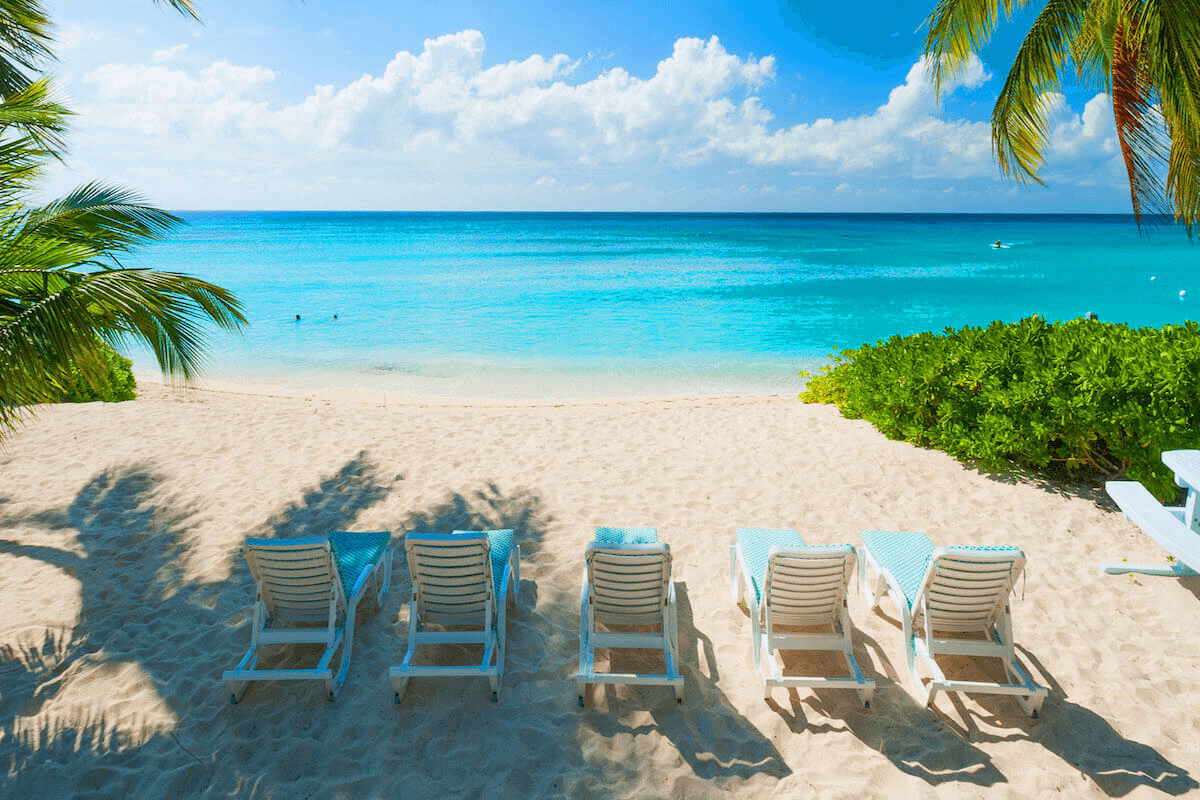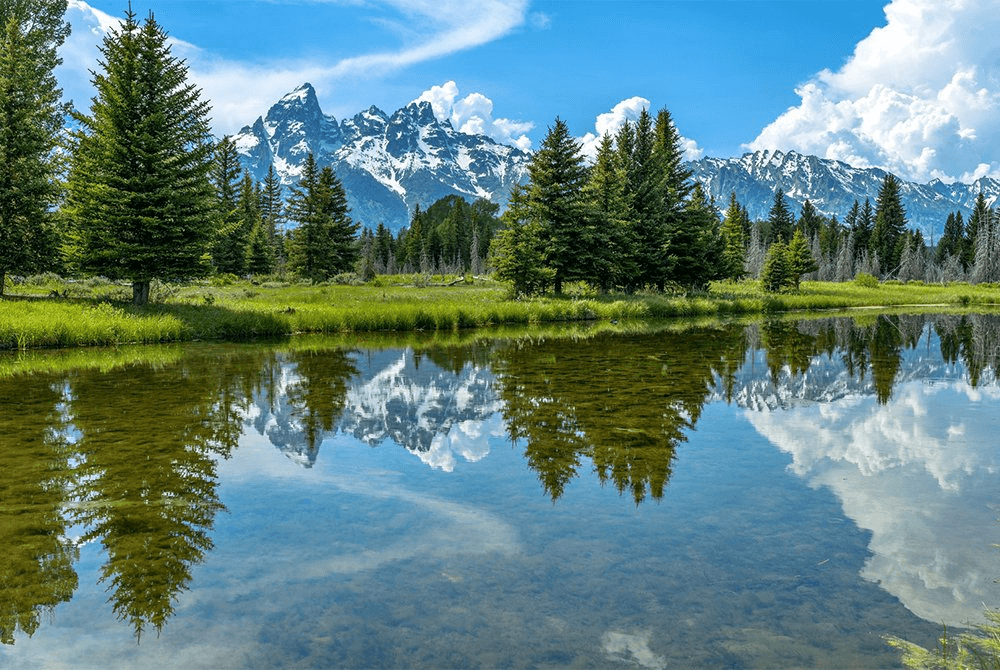Planning a trip to Portugal? Wondering when is the best time to visit this beautiful country? Look no further! In this ultimate guide, we will unveil the perfect time to explore the wonders of Portugal.
Portugal, a hidden gem nestled on the Iberian Peninsula, is a blend of vibrant cities, quaint villages, stunning coastlines, and rolling countryside. Whether you’re craving sunny beach days, vibrant cultural festivals, or stunning autumn foliage, Portugal has it all. With its mild Mediterranean climate, the country offers a pleasant experience throughout the year.
But when is the best time to soak in all that Portugal has to offer? The answer is anytime. Your visit time depends completely on what you want to do in Portugal. Every season offers unique things to do in Portugal.
From exhilarating festivals to tranquil beach retreats, Portugal offers an array of experiences that cater to every traveller’s desires. Consider the unique aspects of each to determine when you want to plan your trip.
Best Time to Visit Portugal by Season
Spring (March to May) in Portugal
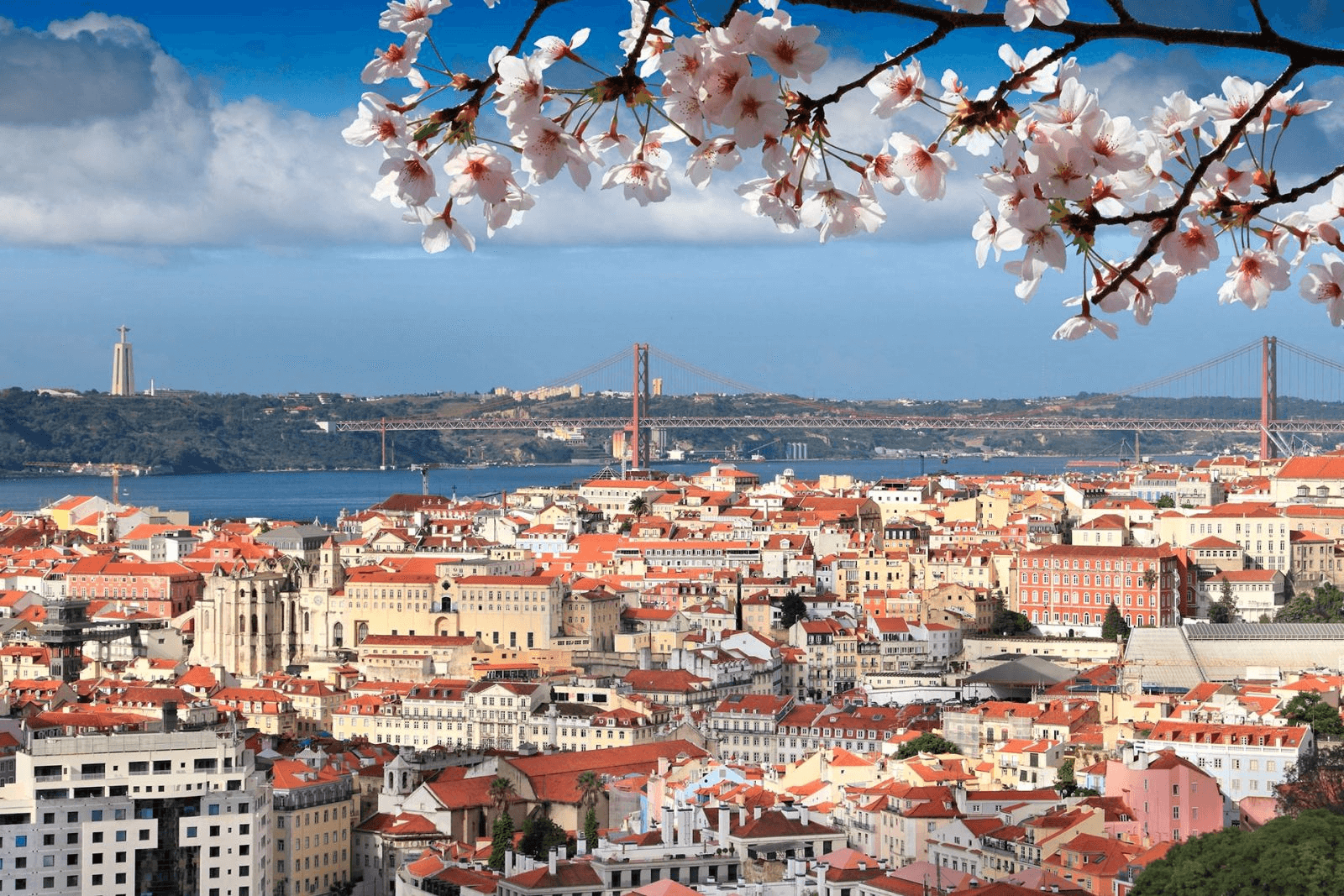
Spring season in Portugal starts in March and lasts until June. The spring season is the best time to visit Portugal because the weather is usually mild and pleasant, the countryside is lush and green, and you’ll find fewer crowds compared to the summer months.
During these months, the average temperatures hover between 62°F to 75°F (17°C to 24°C). During this time, the days spread longer with the temperatures beginning to warm up – It is during this period that we can see the esplanades being occupied again throughout the Portuguese territory.
Spring is also ideal for exploring northern cities like Porto as almond trees burst into bloom. It is also a good time for sightseeing and outdoor activities.
Activities and Events:
- Nature Walks & Hiking: Hike the Azores, which is a paradise for hikers, especially during spring when flowers bloom. Trails like the Sete Cidades or the Faial Caldera offer mesmerizing views.
- Festa das Tochas Floridas: Held in São Brás de Alportel on Easter Sunday, this event involves a unique procession where the streets are covered with flower patterns.
- IndieLisboa: Held in late April or early May, Lisbon’s International Film Festival offers a platform for independent films from around the world.
- Iberian Mask Festival: Participate in the May event, which celebrates the cultural heritage of Iberian masks, with parades, dances, and exhibitions.
Summer (June to August) in Portugal
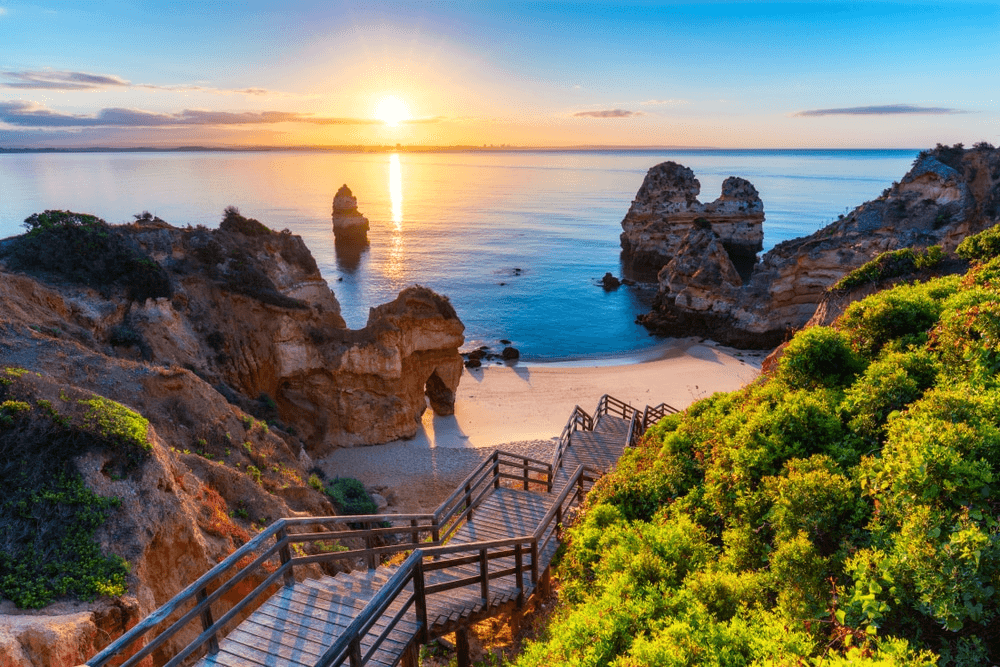
The summer season in Portugal starts in June and lasts until August. The summer weather is hot and dry, making it an ideal season for beach holidays. Coastal areas like the Algarve are particularly popular during this time. However, be prepared for larger crowds and higher prices, especially in popular tourist destinations.
During these months, the average temperatures hover between 64°F to 86°F (18°C to 30°C). During this time, the day becomes hotter with minimal rainfall. The refreshing sea breezes along the coastline offer a welcome relaxation from the heat, creating a pleasant atmosphere for beach lovers and outdoor enthusiasts.
Activities and Events:
- Beaches: The summer season is the best time to explore the country as it provides a perfect scenario for water sports, hiking, biking, sunbathing, surfing, exploring trails and nature. The Algarve and Alentejo coastlines are perfect during these months.
- São João Festival: Celebrated on the night of 23rd June in Porto, participate in this festival that involves street concerts, dance parties, and the tradition of hitting each other’s heads with plastic hammers.
- Medieval Fair in Óbidos: Experience this festival that transforms the town into a medieval setting, with costumed performers, traditional games, and food stalls.
Autumn (September to November) in Portugal
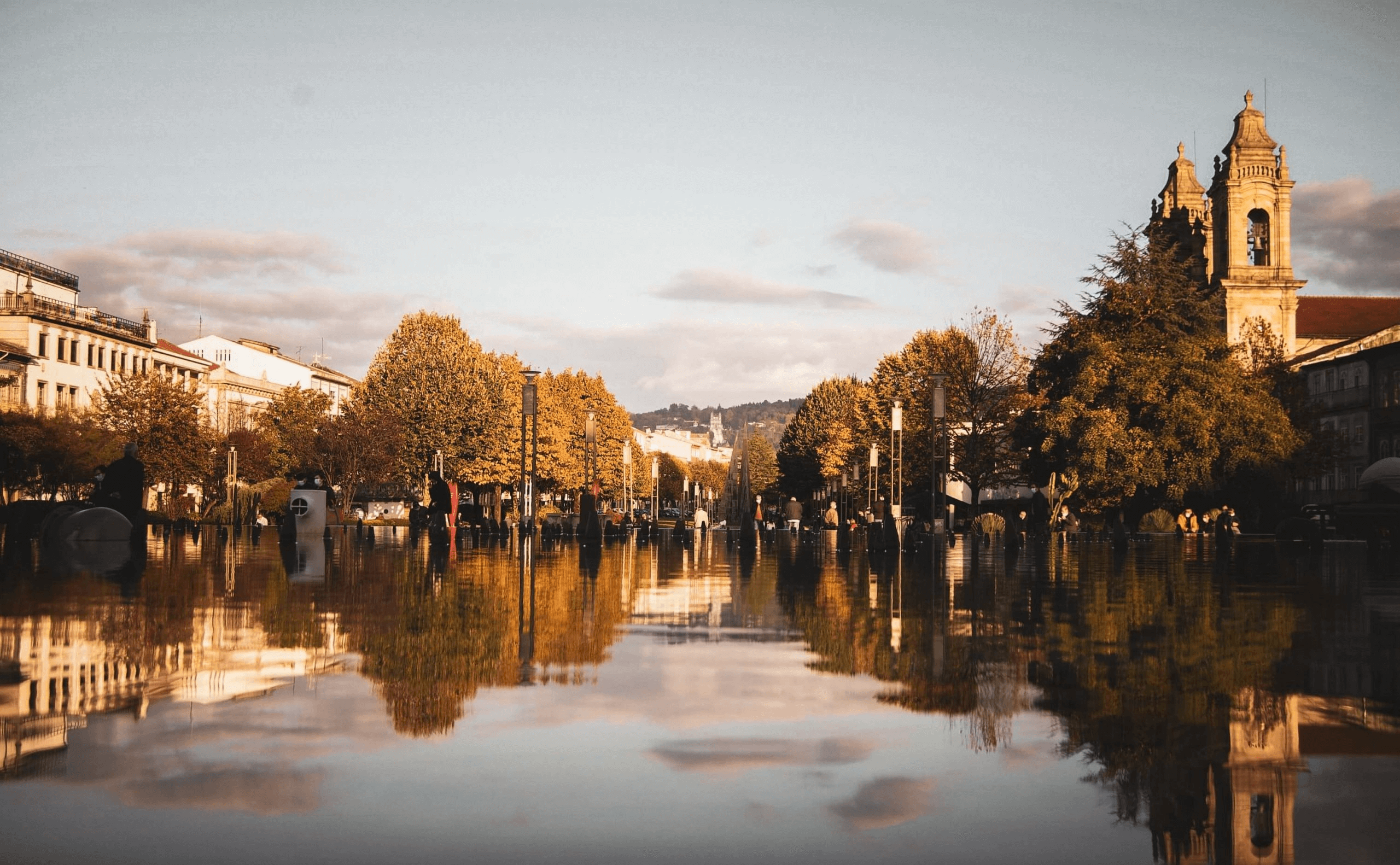
The autumn season in Portugal starts in September and lasts until November. It is one of the best seasons to visit Portugal. The autumn season offers milder weather, fewer crowds and a beautiful landscape for adventure. During this time, you can explore the cities and attractions more comfortably.
During these months, the average temperatures hover between 61°F to 82°F (16°C to 28°C). During this time, the day becomes milder with occasional rainfall. The fall foliage in some regions, such as the Douro Valley, can be quite stunning during this season.
Activities and Events:
- Nature Walks & Hiking: Cooler temperatures make it the ideal time for outdoor adventures. Trails in the Azores, Madeira, and Gerês National Park are particularly enticing during the autumn season.
- São Martinho Fairs: Held in November, particularly in Lisbon and Porto, these fairs celebrate St. Martin’s Day with roasted chestnuts, jeropiga (a traditional drink), and água-pé.
- Porto PianoFest: Participate in this annual event that showcases classical piano concerts, masterclasses, and collaborations between national and international artists.
Winter (December to February) in Portugal

The winter season in Portugal starts in December and lasts until February. Winter is the off-peak season for tourism in Portugal. While the weather is milder compared to many other European countries, it can still be quite chilly and rainy, especially in the northern and central regions.
The Algarve, on the other hand, remains relatively mild. This is a good time to visit Portugal if you prefer quieter streets, more affordable accommodations, and want to see the more authentic side of the country.
During these months, the average temperatures hover between 46°F to 61°F (8°C to 16°C). During this time, the day becomes milder with more rainfall. The sea is quite cold, but the biggest waves arrive in winter, making it an ideal season for surfing.
Activities and Events:
- Winter Sports: The winter season is ideal for winter sports such as cross-country skiing, alpine skiing, snowboarding, ski jumping, speed skating, figure skating, luge etc. Get your gear ready as winter approaches.
- Fantasporto (Oporto International Film Festival): Held in Porto, it’s one of Europe’s prominent film festivals, showcasing international films, especially from the fantasy genre.
- Christmas Celebrations and New Year’s Eve: Cities and towns are adorned with lights, nativity scenes, and Christmas markets. Lisbon and Porto are particularly festive.
Regional Variations
Northern Portugal
Northern Portugal, like Porto, is about ten degrees colder than the Southern region. They also experience more rain than the south and offer lush landscapes, particularly in spring and autumn.
The average temperature in Nothern Portugal is 79°F (26°C) between June and September and 55°F (13°C) during the winter months of January and February. If you’re visiting this region during the winter season, you need to be prepared for unpleasant weather.
Central Portugal
Central Portugal, like Lisbon, offers a balanced climate, with hotter summers but generally pleasant conditions throughout the year. The average temperature for the majority of the year is 70°F (21°C). The wind is a bit intense, and the summers are hot.
Southern Portugal
Algarve region in Southern Portugal is the most popular tourist destination due to its higher all-round temperature. During drummer, the weather is warm and dry with an average temperature of 79°F (26°C). Winters are mild, with an average temperature of 60°F (16°C), making it an attractive off-season destination.
Best Time to Visit Portugal by Month
January
January in Portugal is characterized by cold weather and rainfall, with occasional cooling trade winds. Average temperatures range from 47°F to 65°F (8°C to 18°C). Due to the ideal combination of cooler temperatures and rainfall, January happens to be the cheapest month to visit Portugal. This month also offers a tranquil time, especially along the coastlines.
Activities and Events:
- City Exploration: Without the typical tourist crowds, you can experience a more authentic feel of major cities in Portugal. Enjoy their historical sites, wander through the alleys, and sip coffee in local cafes.
- Dia de Reis (Three Kings’ Day): Celebrated on January 6th, it marks the end of the Christmas season. There are parades, carolling, and traditional pastries like “Bolo Rei” to savour.
- Angra do Heroísmo Festivities: Celebrated in the Azores, this January event celebrates Saint Gonçalo, the patron saint of marriageable women, with processions and traditional sweets.
February
February maintains the cold temperatures of January, but there’s a distinct shift towards spring, with days slowly getting longer and a hint of warmth in the air. The month is a mix of mild and moderate sunny days and grey, gloomy ones as winter begins to disappear. Average temperatures range from 48°F to 66°F (9°C to 19°C). February could be an ideal month to visit Portugal as the crowds are fewer and the weather starts to brighten up.
Activities and Events:
- Coastal Walks: Although the weather is still cool for swimming, the coastlines of Cascais and Algarve provide beautiful scenic walks.
- Surfing: For experienced surfers, places like Nazaré offer strong winter waves, making it an adrenaline-pumping experience.
- Fantasporto: This renowned film festival in Porto showcases both mainstream and independent films, focusing on fantasy and sci-fi genres.
- Carnaval: This annual carnival is celebrated across Portugal with parades, dances, and elaborate costumes. Torres Vedras hosts the most traditional Carnival in Portugal, while the Algarve region and Madeira have significant celebrations too.
March
The month of March marks the beginning of the Spring season in Portugal. The weather is milder but still unpredictable. Occasional rainfall, especially in the northern and central regions. Average temperatures range from 52°F to 68°F (11°C to 20°C). March could be an ideal month to visit Portugal as the crowds are fewer, the weather is radiant, and accommodations are more affordable.
Activities and Events:
- Nature Walks & Hiking: Hike the Azores, which is a paradise for hikers, especially during spring when flowers bloom. Trails like the Sete Cidades or the Faial Caldera offer mesmerizing views.
- Festa das Tochas Floridas in São Brás de Alportel: Held on Easter Sunday, which sometimes falls in March, this Algarve town hosts a unique celebration where the streets are carpeted with flowers, and residents carry torches made of flowers.
April
By April, the Spring season is fully in, bringing warmer temperatures and abundant sunshine in both the north and the south. This month sees a profusion of wildflowers in the south, laying down the foundation for the upcoming summer season. Average temperatures range from 56°F to 70°F (13°C to 21°C). While the summer crowds are still a long way off, visitor numbers start to steadily rise in late April, particularly in hotspots like the Algarve.
Activities and Events:
- Nature and Flower Tours: Participate in nature and flower tours, especially in Medeira, which offers flower tours in its capital, Funchal. The laurel forests, a UNESCO World Heritage site, are also a haven for nature lovers.
- Surfing: Visit Coast Da Caparica, South of Lisbon, which is a hotspot for surfers, beginners and experts alike.
- Liberty Day (Dia da Liberdade): Celebrating the 1974 revolution that ended decades of dictatorship, this national holiday is marked with ceremonies, concerts, and cultural events across the country.
- Semana Santa de Braga: As one of Portugal’s oldest cities with a rich religious history, Braga hosts solemn processions, church services, and traditional events during the Easter Holy Week, which often falls in April.
- Semana do Cais Pescador: This event celebrates Setúbal’s maritime heritage with seafood gastronomy, traditional music, and nautical-themed events.
May
May in Portugal is synonymous with longer days, the fragrance of blooming flowers, and the anticipatory buzz of the approaching summer. As the temperature becomes warmer, crowds begin to build up as we approach the summer months. Average temperatures range from 59°F to 76°F (15°C to 24°C). While the summer crowds are still tripping in, visitor numbers start to steadily rise, particularly in hotspots like the Algarve.
Activities and Events:
- Beach Excursions: Discover the stunning, rugged coastline and unspoiled beaches of the western Algarve and Alentejo regions.
- Cycling and Hiking: Traverse the woodlands, coastal cliffs, and palatial settings in the cooler May climate.
- Fado nas Ruas: Alfama, Lisbon’s oldest district, echoes the soulful tunes of Fado music as artists perform in the streets and squares, creating a magical atmosphere.
- Iberian Mask International Festival in Lisbon: This unique event showcases traditional Iberian masks and costumes with parades, music, and dance. Participants from Spain and Portugal celebrate their shared cultural heritage.
- Queima das Fitas in Coimbra: A traditional student festivity marking the end of the academic year. It features parades, concerts, and lively celebrations, making Coimbra especially vibrant in May.
June
June in Portugal marks the official beginning of summer, and with it comes the warm Mediterranean sun, azure skies, and an infectious festive spirit. With its perfect climate for a holiday, June is the best month to visit Portugal. Average temperatures range from 63°F to 80°F (17°C to 27°C). By this month, you will start seeing more crowds at popular attractions and accommodation prices start to rise.
Activities and Events:
- Beach Activities: The month of June is perfect for beach activities such as sunbathing and water sports like jet skiing and paddleboarding.
- Festas de Lisboa – Santo António Festival: Held on the night of June 12th, Lisbon is illuminated with festivities honouring Saint Anthony. Activities such as grilled sardines, folk music, parades, and street parties dominate the scene.
- São João Festival in Porto: Held on the night of June 23rd, participate in one of Porto’s biggest celebrations. Expect fireworks, dancing, and the quirky tradition of hitting each other’s heads with soft hammers!
- Sintra Music Festival: This is a classical music event attracting international artists, set against the fairy-tale backdrop of Sintra’s palaces and gardens.
July
July in Portugal is deep into the summer season, the hottest month of the year and also the driest and the sunniest. The entire country vibrates with life and activity. Lisbon and Porto also experience crowds, and prices soar in July and August. Average temperatures range from 66°F to 83°F (19°C to 28°C).
Activities and Events:
- Fado Festival in Alfama: This is the birthplace of Fado and hosts a festival dedicated to this soul-stirring music form, with performances in ancient churches, squares, and bars.
- Paredes de Coura Festival: Held near the Spanish border, this music festival is known for its scenic location by the Taboão River beach and its eclectic line-up.
August
August is the peak of summer in Portugal. With temperatures often reaching their peak, the country welcomes hordes of both domestic and international vacationers. With temperatures often reaching their peak, the country is flooded by both local and international tourists. Average temperatures range from 65°F to 83°F (18°C to 28°C).
Activities and Events:
- Silves Medieval Fair: Participate in this historical event by stepping back in time with medieval-themed stalls, jousting events, and performers in period attire.
- NOS Alive in Lisbon: Attend one of Europe’s most esteemed music festivals. It boasts an impressive line-up of international artists spanning various genres.
September
September in Portugal marks the transition from the blazing summer to the mild, comfortable autumn. As we enter September, the crowds start to thin out, but the weather remains pleasantly warm, making it a favoured month for many who enjoy a quieter yet still vibrant experience. Average temperatures range from 62°F to 76°F (17°C to 24°C).
Activities and Events:
- Feira de São Mateus in Viseu: Attend one of the oldest fairs in Portugal. It encompasses concerts, traditional games, and food stalls, running from August to late September.
- Festa das Vindimas in Palmela: This is a grape harvest festival. It includes parades, wine tasting, folk music, and the crowning of the Grape Harvest Queen.
- Azores Fringe Festival: Hosted across the Azores islands, this arts festival showcases a myriad of artistic disciplines, from visual arts to performances.
October
October in Portugal is a beautiful blend of summer’s end and the onset of autumn. The vibrant summer festivities gently make way for the gentle embrace of all colours, mellow festivals, and a soothing ambience. During this month, expect more rain and less sun. Average temperatures range from 56°F to 76°F (13°C to 20°C).
Activities and Events:
- Autumnal Nature Trails: During this month, you can wander through the forests painted in fall hues and explore the romantic palaces of Sintra.
- Amadora International Comics Festival: Attend the largest event in Portugal dedicated to comics and graphic novels, featuring exhibitions, workshops, and international guests.
- Feira de Outubro in Vila Franca de Xira: This is a traditional fair celebrating Portuguese equestrian and bullfighting traditions, accompanied by local music and food.
- Angra do Heroísmo International Jazz Festival: Participate in this festival held in Terceira, Azores. This festival gathers renowned jazz musicians from various countries.
November
November in Portugal is the peak of autumn. This month is characterized by the rich tapestry of fall colour, shorter days, and dry air. The weather is mild, with occasional rain, and you can start experiencing a little winter at the end of the month. Average temperatures range from 50°F to 61°F (10°C to 16°C).
Activities and Events:
- Olive Harvesting: During this month, you can participate in the olive-picking tradition and learn about olive oil production.
- São Martinho Fair in Golegã: Celebrated in honor of St. Martin, this fair is a blend of equestrian events, folk music, and the traditional drinking of “água-pé” (a light wine).
- Porto PianoFest: Participate in this event that brings international pianists to Porto. The festival offers concerts and masterclasses and showcases contemporary and classical piano music.
- All Saints Day (Dia de Todos os Santos): Held on November 1st, families gather to remember the deceased, often visiting cemeteries to lay flowers and light candles.
December
December in Portugal is the onset of the winter months, characterized by mild to warm days and cold and damp nights, especially near the coast, but warmer and drier inland. This month also witnessed fewer crowds, but it is also the perfect month for winter sports. Average temperatures range from 48°F to 58°F (9°C to 14°C).
Activities and Events:
- Christmas Concerts: Churches and concert halls across the country host festive musical performances, from Fado to classical concerts.
- Porto’s São Silvestre Race: Held on December 29th, this 10km race attracts both professionals and amateur runners dressed in fun, festive outfits.
- New Year’s Eve Celebrations: Major cities like Lisbon, Porto, and Algarve host parties, concerts, and fireworks to usher in the New Year.
Ready to Visit Portugal?
The best time to visit Portugal depends on your preference. Every season in Portugal unveils a new facet of its charm, offering a wealth of experiences to suit every traveller’s tastes. For beach lovers, summer is the best time to visit Portugal. For those keen on sightseeing with fewer crowds, spring or autumn is the perfect season for that. For those interested in winter activities, the winter season is the best season for that. In truth, Portugal’s charm persists year-round, beckoning travellers with its diverse offerings.

